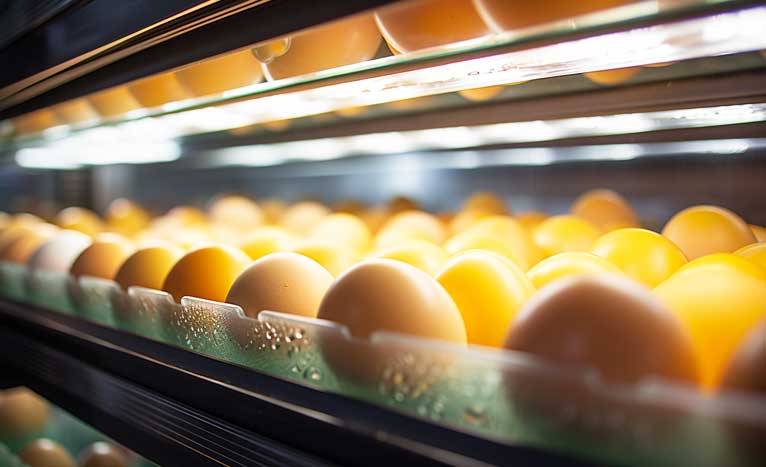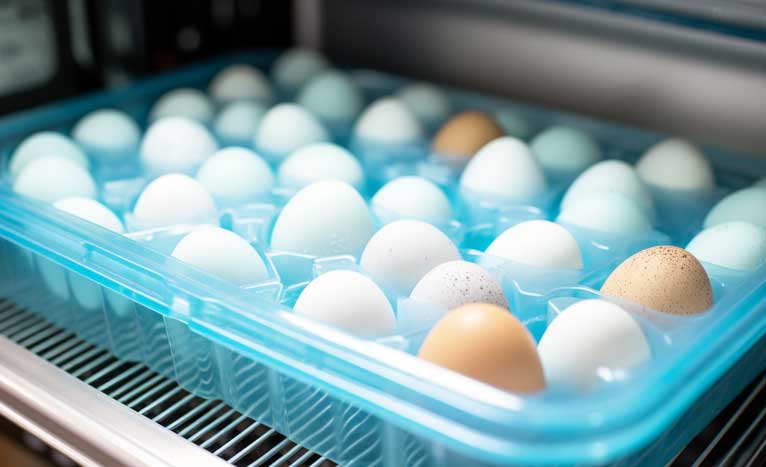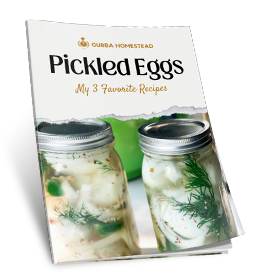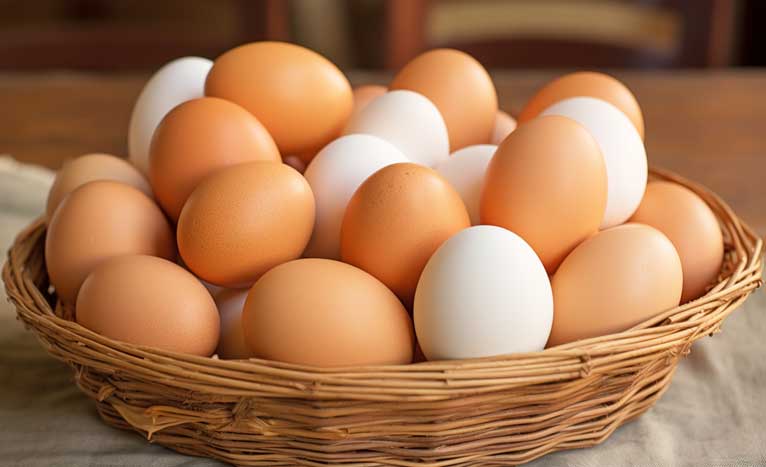Unraveling the Secrets of Egg Storage
If you follow along on any of my homestead adventures, you know chickens are right at the top of my most loved homestead appendages. I enjoy watching them forage and peck about. Listening to the rooster crow at random times through the day (yes, they crow throughout the day) gives me a laugh. Raising chickens is an easy way to become self-sufficient because of the golden goodness they lay for you—eggs!
Eggs are a marvel of nature's design. Enclosed in a fragile shell lies a powerhouse of nutrition and versatility. But as we bring these delicacies into our kitchen, the question arises: How best to store them to ensure freshness and maintain their nutritional value? In this blog, we'll explore the different ways you can store eggs and the best practices for each method. Storing eggs properly is not just a matter of preservation, but it can also influence the taste and texture of what you are baking or cooking. By understanding the diverse methods of egg storage, you'll have the know-how to choose the most suitable approach based on your needs and preferences.
For me, I love to freeze-dry, water-glass, and refrigerate eggs. Your preferred egg storage methods may be different, and that is okay!

Refrigerator: The Usual Suspect
One of the most common places to store eggs is in the refrigerator. This method is most suitable for store-bought eggs, which are washed before sale, removing their protective bloom. The refrigerator offers a consistently cool and controlled environment.
Always store your eggs in their original carton, which not only protects them from the flavors and aromas of other foods but also contains important information like the sell-by date. Additionally, storing them pointed end down helps keep the yolk centered and the air cell intact, further extending their freshness. Avoid the refrigerator door; despite the conveniently sized egg slots, it's subject to more temperature fluctuations, which can decrease the eggs' shelf life.
If you are gathering eggs from your backyard or purchasing farm-fresh unwashed eggs, they don’t have to be stored in the refrigerator right away. This is because unwashed eggs still have the protective coating, the bloom, on them which keep them impermeable to bacteria and other pathogens. Refrigerating will still keep your eggs longer, so I will still refrigerate my farm fresh eggs, but you don’t have to if you are going to use them right away.

Freezing Eggs: Cold Comfort
Storing eggs in the freezer can be a game-changer, especially when you have more eggs than you can use before their expiration date. Freezing eggs extends their life by several months, and the process is straightforward. Crack the eggs into a bowl, lightly beat to blend yolks and whites, pour into a freezer-safe container, and freeze.
You can also freeze egg yolks and whites separately, ideal for recipes that call for only one part of the egg. For yolks, add a pinch of salt or sugar to prevent them from thickening upon freezing. Remember to label your containers with the date of freezing and the number of eggs or yolks/whites inside to keep track of your stock.
The easiest way to freeze eggs is to pour the eggs into ice cube trays, freeze them, and when frozen remove from the trays and place into a Ziploc bag in the freezer. This will give them a shape and they will keep it inside of the Ziploc bag. Being inside of a bag will keep the eggs from absorbing aromas.
Pickling Eggs: Tart and Tasty
Pickling is an age-old method that gives eggs a longer shelf life and an interesting flavor twist. To pickle eggs, first, hard-boil and peel them. Then immerse them in a pickling solution, which can be a simple vinegar brine or a mixture flavored with herbs, spices, and other ingredients like beet juice for color.
Store the eggs in a non-reactive container, cover with the pickling solution, and refrigerate. The eggs will be ready to eat after a few days and can last for several months. The tangy flavor of pickled eggs makes them a great addition to salads or as a side with your meals.

Get My 3 Favorite Pickled Egg Recipes FREE!
Water Glass Preservation: An Old-School Approach
Using pickling lime, is a traditional method of egg preservation that was popular before refrigeration. The process involves placing fresh, unwashed eggs in a clean container and covering them with a solution of one quart water mixed with two tablespoons pickling lime. The pickling lime solution forms a seal around the eggshell, keeping oxygen and bacteria out and preserving the egg's freshness. This method requires a cool, dark storage place and can keep eggs fresh for up to two years. It's an ideal solution if you have backyard chickens and need a way to store surplus eggs.
I water glass surplus eggs at the end of the summer for my winter supply of eggs. I do this so I never have to buy eggs in the winter!
Dehydrating and freeze-drying Eggs: Longevity Guaranteed
Dehydrating eggs might sound unusual, but it's an effective method for long-term storage. It involves beating eggs, then dehydrating them at a low temperature until all moisture is removed. Once dried, the eggs can be ground into a powder and stored in an airtight container, which can last for several years if stored correctly. This powder can be rehydrated with water and used in any recipe that calls for eggs. It's particularly convenient for baking or as an addition to camping food where carrying fresh eggs isn't practical.
Dehydrating is similar to freeze drying in that both processes remove moisture. Freeze drying removes up to 99% of moisture which makes freeze-dried eggs optimal for long term storage of 20 years, whereas dehydrated eggs would need to be used within a few months because they still have some moisture retained in them.
Curing Eggs: The Flavor Bomb
Curing is a preservation method that not only extends the shelf life of eggs but also turns them into a unique and flavorful ingredient. The curing process involves burying egg yolks in a mixture of sugar and salt, which draws out moisture and intensifies the yolk's flavor. After about a week, the yolks are removed from the curing mixture and dried until they have a firm, cheese-like texture. These cured yolks can be grated over dishes like pasta, salad, or toast for a delicious umami boost.
This is a neat way to preserve eggs, and I am all for traditional methods that don’t use modern day technology!
Be Egg-ceptional in Your Kitchen
Storing eggs might seem straightforward, but as we've seen, there are a variety of methods each offering unique benefits. From the familiar comfort of refrigeration to the long-term stability of freezing, from the flavorful adventure of pickling and curing to the practicality of drying - understanding these methods gives you the freedom to use eggs in versatile and creative ways. I love tapping into our ancestral roots with traditional egg storage methods, but I love the modern conveniences of keeping eggs as well! So, be egg-ceptional in your kitchen - crack open the secrets of egg storage and elevate your culinary skills to the next level.

